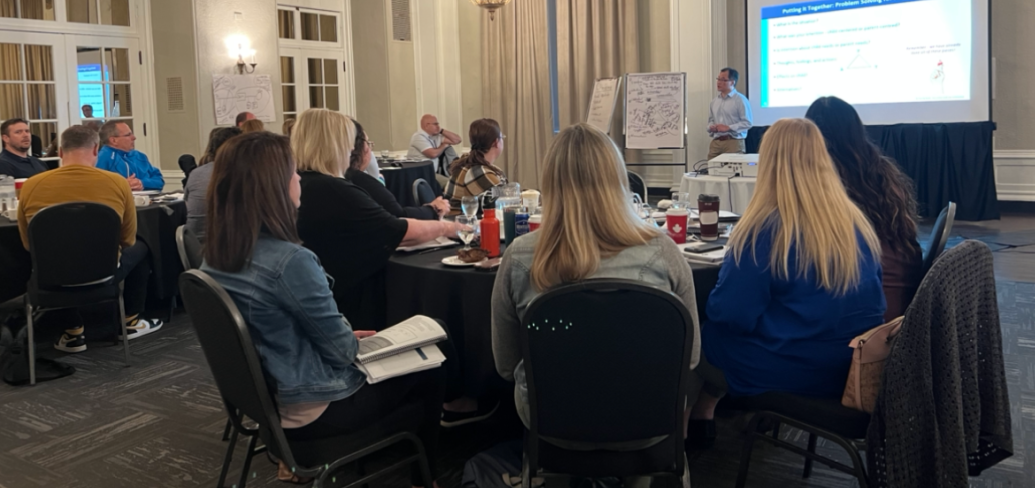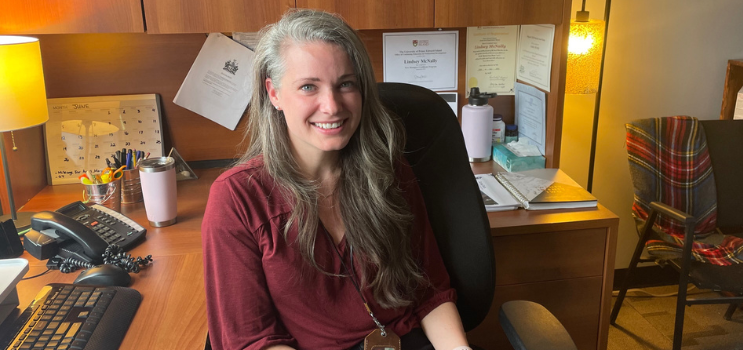
A new program being offered by the Department of Social Development and Housing aims to help male caregivers break the cycle of gender-based violence in their families.
Caring Dads is an intervention program for self-identifying men who have abused, neglected, or exposed their children to domestic violence.
“Family violence looks different in every home,” says Kelly Peck, director of Child Protection Services. “And in each family, everyone has a different story – both victim and perpetrator.”
Providing help to male perpetrators of family violence – or men who are at risk – was a gap in the department’s services that needed to be filled, Peck says.
“We have quite a few services for the victims of family violence, but we didn’t have the same services for perpetrators. So, we addressed that.”
Caring Dads is a 17-week program that helps fathers learn how to develop trust, motivation, awareness, and child-centered parenting practices
The program offers a safe space where father figures can have open conversations about their involvement in family violence, as well as talk about their own history and how that affects their parenting.
Violence is often the result of something that is triggered, says Peck. Caring Dads helps identify those triggers.
“It could be their own past trauma. It could be mental health or addiction. They explore those reasons, those triggers, and develop coping mechanisms.”

During the 17 group sessions, participants examine how past abusive or neglectful parenting has impacted their child – and learn how to regulate those emotions and behaviours moving forward.
“The program helps them focus on parenting goals. What is good parenting?” says Lindsey McNally, a senior social worker with the department.
Instead of telling them what good parenting is, Caring Dads guides participants so they can come to that conclusion themselves about their own individual parenting and what is needed to improve and build on it, she says.
“It’s talking to them about the things they want to change,” McNally says – such as how to have a healthy relationship with an ex-partner or how to make safer decisions when children are around.
Children benefit from seeing a father figure who’s emotionally supportive, respectful and safe, she says.
And that can help end the cycle of intergenerational abuse.
“When you recognize it, you stop it,” says McNally. “So, it’s less likely for a child to engage in that type of behaviour themselves. It’s modeling.”
McNally was one of several department staff who completed training last month to deliver the Caring Dads program on PEI.
Male-identifying clients looking for or needing help now have somewhere to turn, she says.
“It’s nice to be able to immediately refer them and to know they can get that change they’re wanting.”
Although the program is focused on dads and male caregivers, it helps the whole family, says McNally. Research shows that when father figures are positively involved with their families, children benefit socially, emotionally and developmentally.
“Seeing a father who’s healthy and appropriate, who’s supporting their mother, and who’s not exposing them to domestic violence – that has long term, positive effects.”
The Caring Dads program is open to all biological fathers, stepfathers, adoptive fathers, gender diverse fathers, and fathers of varying sexual orientations, including non-binary folks.
For information on a Caring Dads program near you, call 902-368-6180 or email cegaite@gov.pe.ca
